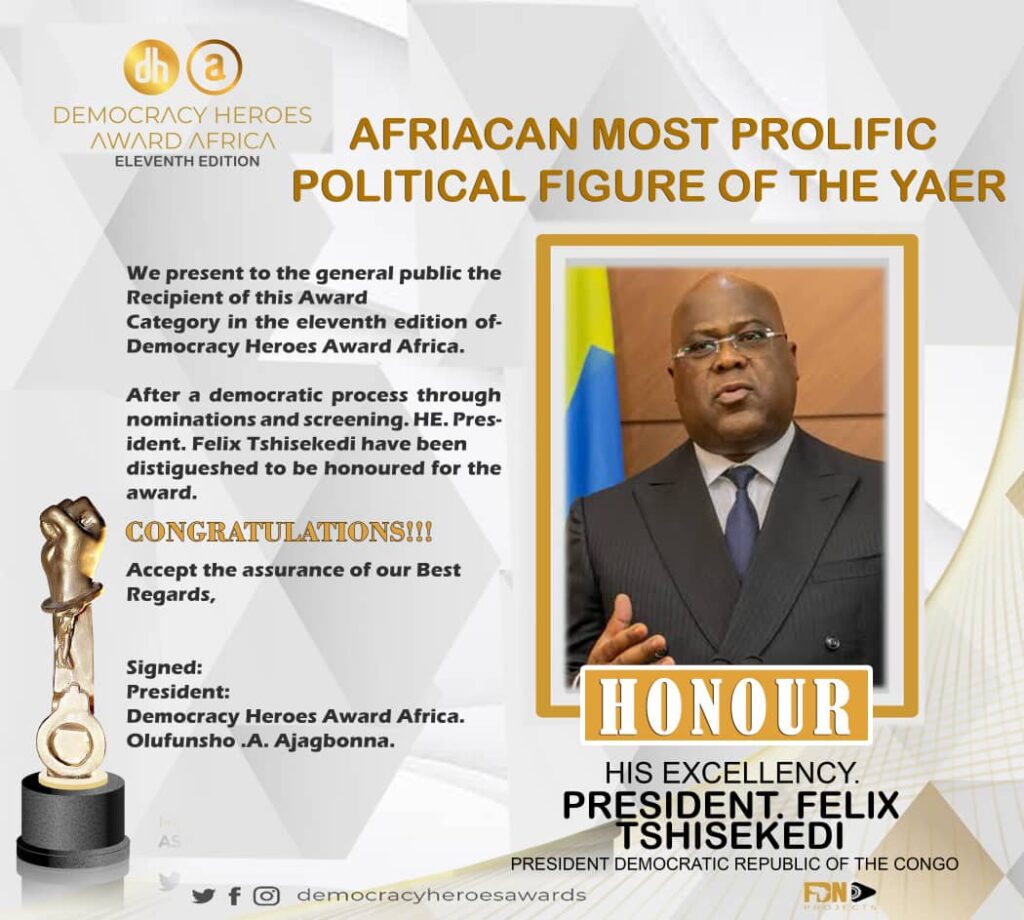MEET YOUR HERO.
HIS EXCELLENCY FÉLIX ANTOINE TSHISEKEDI TSHILOMBO
THE PRESIDENT DEMOCRATIC REPUBLIC OF THE CONGO.
Félix Antoine Tshisekedi Tshilombo (French; born 13 June 1963 is a Congolese politician who has been the President of the Democratic Republic of the Congo since 24 January 2019. He is the leader of the Union for Democracy and Social Progress (UDPS), the DRC’sj oldest and largest party, succeeding his late father Étienne Tshisekedi in that role, a three-time Prime Minister of Zaire and opposition leader during the reign of Mobutu Sese Seko. Tshisekedi was the UDPS party’s candidate for president in the December 2018 general election, which he was awarded, despite accusations of irregularities from several election monitoring organisations and other opposition parties. The Constitutional Court of the DRC upheld his victory after another opposition politician, Martin Fayulu, challenged the result, but Tshisekedi has been accused of making a deal with his predecessor, Joseph Kabila. The election marked the first peaceful transition of power since the state became independent from Belgium in 1960.
Since the Common Front for Congo (FCC) coalition, which is aligned with Kabila, still controlled the parliament and provincial governorships, Tshisekedi’s ability to govern or even appoint a new Prime Minister was limited for the first six months of his term. He named his coalition partner and political heavyweight, Vital Kamerhe, as his Chief of Cabinet, at first having designated him prime minister but not having the parliamentary support to have him successfully appointed. In May 2019 he reached a deal with the parliament’s Kabila-aligned majority to appoint Sylvestre Ilunga prime minister. On 27 July 2019, negotiations finally ended between Tshisekedi and the parliament, agreeing on the formation of a new cabinet.
Tshisekedi, a member of the Luba ethnic group, was born in Kinshasa on 13 June 1963 to mother Marthe and father Étienne Tshisekedi, who served as Prime Minister of Zaire in the 1990s. He had a comfortable life as a youth in the capital, but when his father created the UDPS in the early 1980s, publicly opposing Mobutu, Félix was forced to accompany him into house arrest in his native village in central Kasaï. This put his studies on hold. In 1985, Mobutu allowed him, his mother, and his brothers to leave Kasaï. He went on to live in Brussels, Belgium, where he worked at odd jobs, delivering pizza and cleaning jobs, he later became an active UDPS member.
